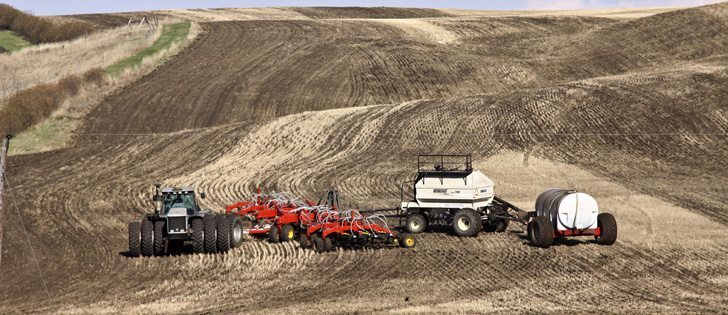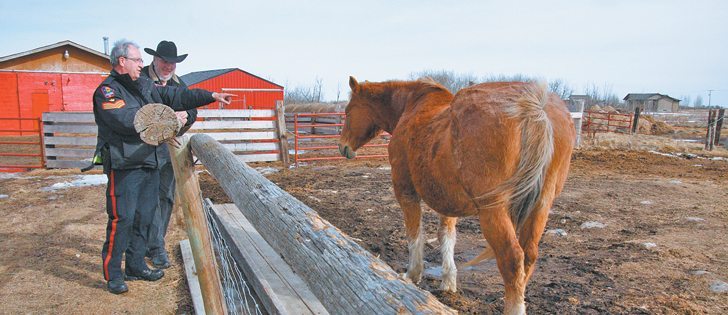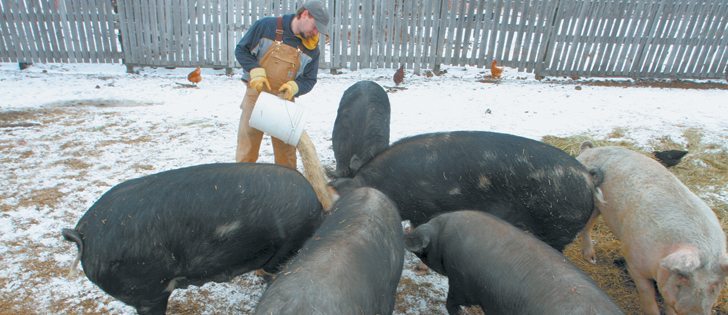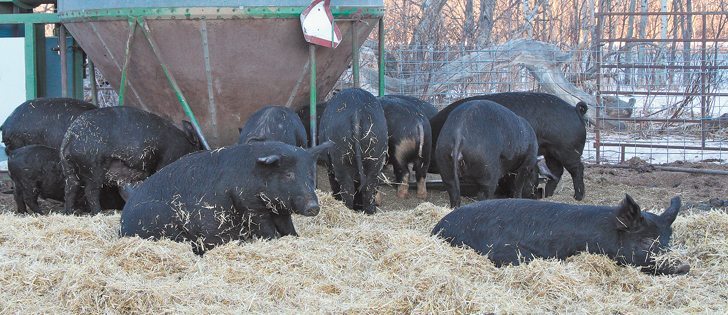Small farm viability | Some industry experts say policies that support small, inefficient farmers can depress prices
TORONTO — An underlying theme from many agribusiness-connected speakers at a national food conference last week was that the future of the food industry depends on achieving “economies of scale.”
On Feb. 8 during a speech on industry viability, Conference Board of Canada vice-president Michael Bloom said farm number decline is concentrated in the sector with less than $50,000 in annual revenues.
“Small farms are struggling,” he said at the meeting, which the conference board organized as one step in plans to develop a national food strategy. “The bigger you are, the stronger your viability.”
Read Also

Farming Smarter receives financial boost from Alberta government for potato research
Farming Smarter near Lethbridge got a boost to its research equipment, thanks to the Alberta government’s increase in funding for research associations.
The previous day, Loblaw Cos. Ltd. executive chair Galen Weston argued for a public policy environment that allows smaller farmers and manufacturers to be viable, but he also complained about public policy that makes the food sector “less competitive than it should be.”
He said one example is programs that send support money to “smaller inefficient producers” whose production helps over-supply markets and depress prices.
Later, Maple Leaf Foods president Michael McCain told the conference that larger units will be required to keep the Canadian sector viable.
“People will have to get used to bigger farms and processors,” he said.
“People can’t afford to oppose scale in food production on ideology alone. Explain that to the people who don’t have enough food.”
Underlying the “big-is-better” comments were implicit criticisms of supply management because its higher prices, market share quotas and import controls help keep smaller farms viable.
By day two, eastern Ontario small-scale farmer Coral Sproule had heard enough.
“Big is not the only way to go,” she told Bloom after his presentation that included the decline of “struggling” smaller farms.
Some smaller farmers do well, replied Bloom, but the statistics show it is the sector most likely to suffer exodus.
Sproule said she earns revenues of $10,000 per acre on her two-acre vegetable and goat operation near Perth, Ont. With few inputs or costs, most of that stays with the farm.
She is involved in the community-supported agriculture sector that involves advance contracts with consumers for the produce she delivers.
“I just think there has been a fundamental bias (at the conference) that scale is the only answer to viability,” the Ontario National Farmers Union youth adviser said in an interview.
“It seems to me they are talking only about economic sustainability and not environmental sustainability and I do believe smaller farms can be viable without buying into the economies-of-scale ideology.”
Sproule said she also “took exception to some of the comments that supply management is a social program and not an economic issue.”
In fact, agribusiness speakers walked carefully around the issue of the impact of supply management regulations and restrictions on Canadian food sector viability.
When a representative of the anti-supply management Canadian Restaurant and Foodservices Association asked about the impact of marketing board restrictions, Weston said he had been “advised to stay clear of this subject.”
Then he waded in.
Only a long-term strategy that demonstrated the problems with supply management could lead to change, he said.
When McCain was confronted with a similar question from the audience, he conceded it was politically sensitive but clearly an“impediment to increasing food sector competitiveness.
“Supply management supports small enterprises and breeds inefficiency,” he said. “That is social policy rather than economic policy.”

















